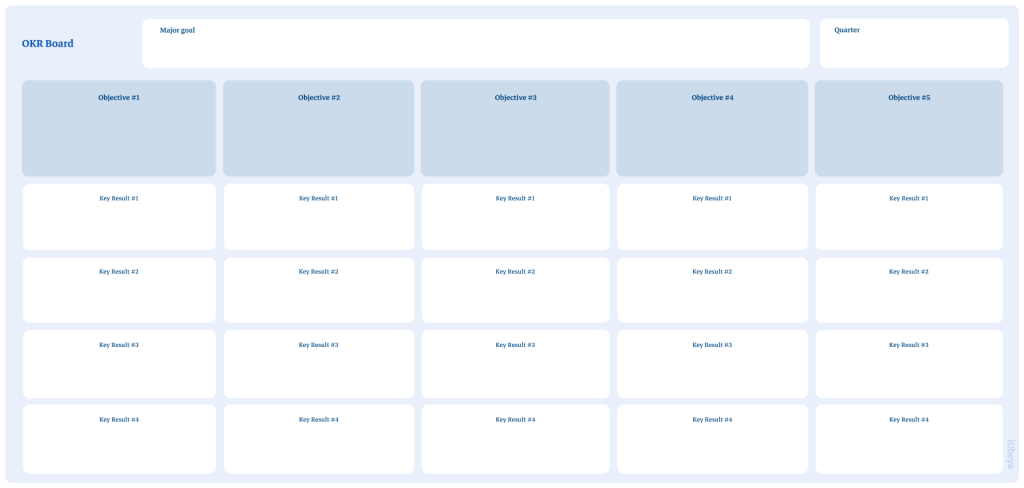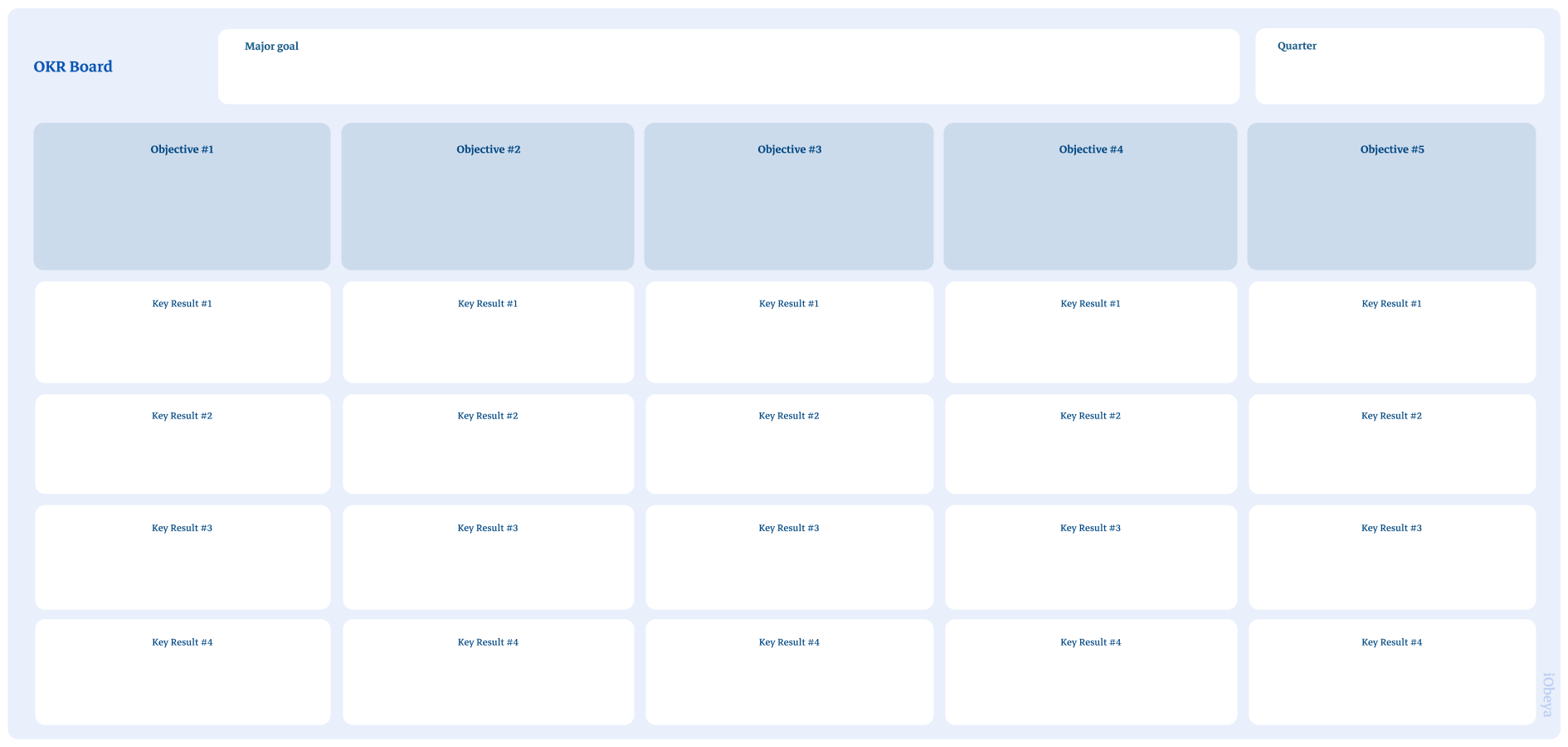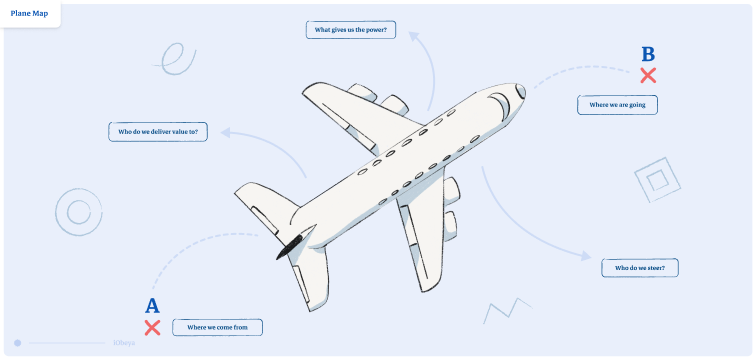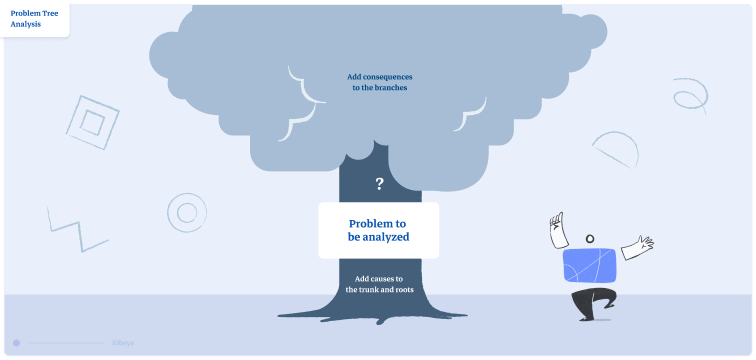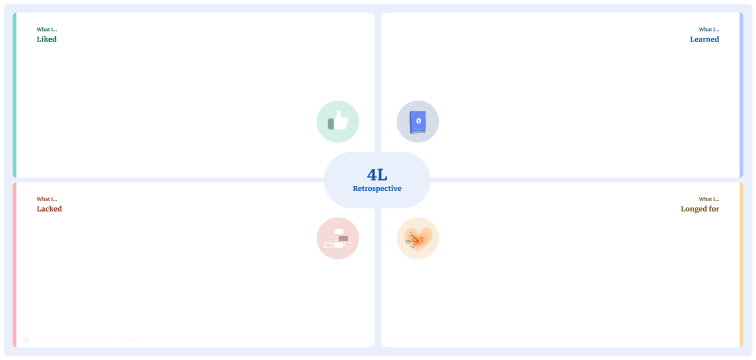What is an OKR board in iObeya?
An OKR board is a Visual Management tool that allows you to track and display the Objectives and Key Results (OKR) of an organization, a team, or an individual. OKRs are widely used for performance management and goal setting.
An OKR board is a physical or digital board where the main objectives of a company, team, or project, as well as the key results that need to be achieved to meet these objectives, are displayed. OKRs are designed to be specific, measurable, ambitious, relevant, and time-bound. They provide a clear framework for aligning efforts and priorities within an organization.
Why use an OKR board?
An OKR board allows you to track real-time progress toward the achievement of objectives and key results. It helps teams stay focused on what matters most, prioritize tasks, and ensure that everyone is aligned to achieve the company’s goals.
The use of an OKR board offers several benefits for companies and organizations, including:
- Aligning teams with common objectives and key results;
- Transparency via OKR boards that make objectives and progress visible;
- Prioritizing tasks and projects based on the most important objectives;
- Holding each team member accountable for achieving their own objectives;
- Real-time tracking of progress toward set objectives. OKR boards facilitate quick adjustments when needed;
- Informed decision-making through OKR boards that provide a solid foundation with clear objectives and ongoing data collected on progress.
In summary, OKR boards are well-suited for operational performance management and promote goal achievement within organizations. They enhance the productivity and efficiency of organizations that use them.
Who uses an OKR board?
OKR boards are used by both Lean and Agile teams.
The Lean method and OKR boards share a common aim toward continuous improvement and transparency, but they differ in their primary focus and specific tools. OKR boards focus on objectives, while Lean focuses on the processes that support the achievement of these objectives (including Kaizen or PDCA cycles). Combining these two approaches promotes operational excellence.
The Agile method and OKR boards have in common their aim toward agility, alignment with objectives, transparency, iteration, and continuous improvement. Combining these two approaches allows for the flexibility and visibility of OKR boards while integrating Agile practices for project and product management. This contributes to creating an organizational culture focused on agility, performance, and goal achievement.
How to set up an OKR board in iObeya
To organize an OKR in your digital Obeya, follow these steps:
- Enter your room, then click ‘Configure’ the room at the bottom right of the screen.
- Add a blank board to your room.
- Select the OKR background from the background catalog.
- In the tool dock define a new set of Notes as Major goal / Objective / Key results, add Free text .
- Your board is now ready to be used.
Expert tips on using an OKR board
To maximize the effectiveness of OKR boards, here are expert tips:
- Take the time to properly train stakeholders on the OKR methodology and how it works.
- The OKR board should involve all hierarchical levels of th organization, from operational staff to top management. Management commitment is crucial to achieving expected results.
- Formulate each objective in a concise sentence with clear, achievable, and measurable key results.
- Limit yourself to 3 or 5 main objectives per period. This will help your teams stay focused on what really matters.
- Ensure that objectives and key results are aligned with the company’s mission and vision. This way, each team’s efforts remain aligned with the organization’s overall goals.
- Regularly update OKR boards, ideally on a weekly basis, to reflect actual team progress.
- Review and adjust your OKRs as needed to maximize the impact of actions and remain agile.
- Share the OKR board with all stakeholders. This transparency will promote accountability and alignment.
- Encourage a culture of learning by sharing experiences, especially when an OKR is not achieved. Failure is an opportunity for improvement.
Feel free to customize these tips based on the specific needs of your organization!

